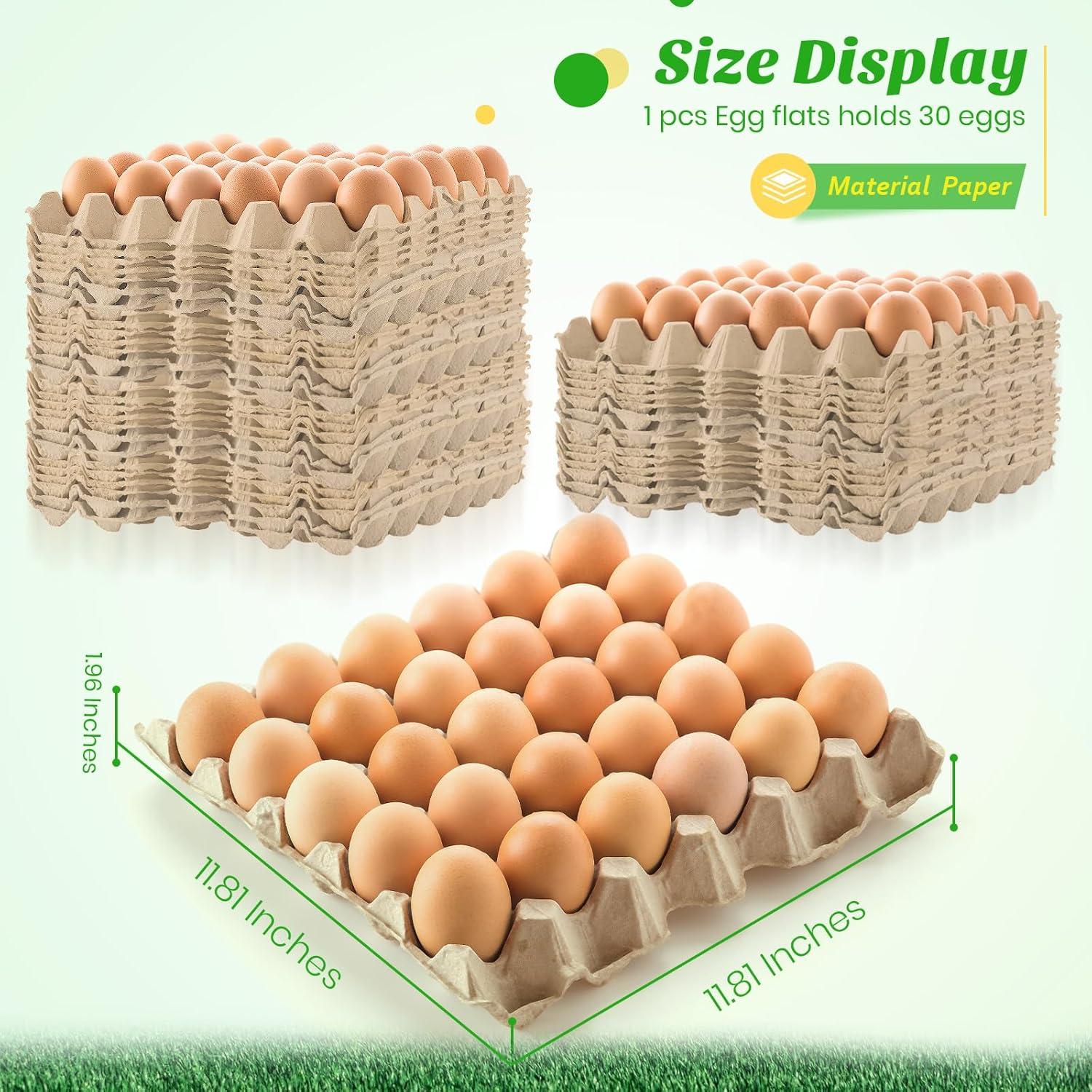Egg cartons are one of the most commonly used packaging materials in households, farms, supermarkets, and the food industry. Although simple in design, egg cartons play a major role in protecting eggs, keeping them fresh, and making transportation easier. Over time, egg cartons have evolved with improvements in material, shape, and eco-friendly features. This article explores the importance of egg cartons, their types, benefits, environmental impact, and why they matter in everyday life.
What Are Egg Cartons?
Egg cartons are special trays or boxes designed to hold and protect eggs during storage and transport. They usually contain small pockets that fit each egg securely. The main purpose of egg cartons is to prevent breakage, maintain freshness, and organize eggs neatly.
Made from materials like cardboard, foam, and plastic, egg cartons offer strength and stability. Their simple, lightweight design makes them easy to handle while keeping eggs protected from shocks, pressure, and contamination.
History and Evolution of Egg Cartons
The invention of egg cartons dates back to 1911. Joseph Coyle, a Canadian newspaper editor, created the first egg carton to solve a dispute between a farmer and a hotel owner over frequently broken eggs. His design made egg transportation safer and more organized.
From cardboard models to foam and reusable plastic, egg cartons have developed significantly over the decades. Today, manufacturers focus heavily on sustainability, leading to eco-friendly egg cartons made from recycled and biodegradable materials.
Types of Egg Cartons
There are several types of egg cartons, each offering unique features. Understanding different types helps consumers and businesses choose the best option for their needs.
1. Paper or Cardboard Egg Cartons
These are the most common and widely used. Made from recycled paper pulp, they are lightweight, biodegradable, and environmentally friendly. Cardboard egg cartons allow ventilation, keeping eggs fresh for a longer time.
2. Foam Egg Cartons
Foam egg cartons are made from polystyrene. They offer excellent cushioning and insulation. Many grocery stores still use foam cartons because they are durable and cost-effective. However, they are not biodegradable, raising environmental concerns.
3. Plastic Egg Cartons
Plastic egg cartons are made from PET or recycled plastic. They are transparent, allowing consumers to inspect eggs before buying. These cartons are strong, reusable, and recyclable in many regions. However, they contribute to plastic waste if not properly recycled.
4. Specialized Egg Cartons
Some egg cartons are designed for premium or organic eggs. These often come with printed branding, colorful packaging, and stronger materials. Specialized cartons enhance the presentation and appeal of premium products.
Why Egg Cartons Are Important
Egg cartons do far more than simply hold eggs. Their importance can be understood through several key functions:
1. Protection Against Breakage
Eggs are fragile, and even slight pressure can crack them. Egg cartons cushion each egg, reduce vibrations during transport, and prevent eggs from bumping into each other.
2. Maintaining Freshness
Some egg cartons allow airflow, helping eggs stay fresh longer. Materials like cardboard and paper naturally absorb moisture, reducing humidity levels around the eggs.
3. Hygiene and Safety
Egg cartons prevent direct handling of eggs, reducing the risk of contamination. They provide a clean, safe barrier against dirt and bacteria.
4. Easy Storage and Organization
Egg cartons help keep eggs organized in homes, refrigerators, and retail stores. Their shape allows stacking, saving storage space.
5. Branding and Information
Manufacturers print important details like the expiration date, egg size, nutritional facts, and brand information on egg cartons. This helps customers make informed decisions.
Environmental Impact of Egg Cartons
Sustainability has become a major concern in recent years. Different types of egg cartons have different environmental effects:
Cardboard Egg Cartons
-
Biodegradable
-
Recyclable
-
Made from renewable resources
-
Most eco-friendly option
Foam Egg Cartons
-
Not biodegradable
-
Hard to recycle in many regions
-
Contribute to landfill waste
Because of environmental concerns, foam cartons are slowly being phased out in many countries.
Plastic Egg Cartons
-
Recyclable, depending on local facilities
-
Durable and reusable
-
Transparent for easy inspection
While plastic cartons are more environmentally friendly than foam, they still pose risks if not disposed of properly.
To reduce environmental impact, many companies now focus on recycled paper cartons or compostable materials.
Creative Uses for Egg Cartons
Egg cartons are not just for holding eggs. People often reuse them for practical and creative purposes, such as:
1. Gardening
Egg cartons make excellent seed starters. They can be filled with soil, planted with seeds, and placed in sunlight. Cardboard cartons can be planted directly into the ground as they naturally decompose.
2. Craft Projects
Children and adults use egg cartons in DIY projects like:
-
flowers
-
animal figures
-
paint trays
-
jewelry holders
3. Storage Organizers
Egg cartons help organize small items like screws, beads, buttons, and stationery.
4. Fire Starters
Cardboard egg cartons, combined with wax or sawdust, can be turned into homemade fire starters.
How Egg Cartons Benefit Farmers and Retailers
For farmers, egg cartons ensure that eggs reach markets safely. Cartons reduce breakage, helping farmers avoid financial losses.
Retailers benefit from egg cartons because:
-
They make eggs easy to display
-
Reduce customer complaints caused by broken eggs
-
Allow branding and promotion
Because eggs are high-demand products, reliable packaging is essential.
What to Look for When Buying Egg Cartons
If you buy eggs or need empty cartons for home or business use, consider these factors:
✔ Material
Choose eco-friendly materials whenever possible.
✔ Strength
Cartons should be sturdy enough to protect eggs during handling.
✔ Capacity
Common sizes include 6, 12, 18, and 30-egg cartons.
✔ Printed Information
Good cartons include expiration dates, egg size, and quality grade.
✔ Recyclability
Look for symbols that show the carton can be recycled.
Conclusion
Egg cartons may seem like a simple everyday item, but they play an essential role in protecting eggs, maintaining freshness, and ensuring hygiene. Over the years, egg cartons have evolved from basic paper trays to eco-friendly and reusable packaging solutions. With growing awareness of environmental sustainability, choosing the right type of egg carton matters more than ever.
Whether you are a consumer, farmer, retailer, or craft lover, egg cartons offer endless value and convenience. Their durability, versatility, and protective features make them one of the most important packaging products in the food industry.



